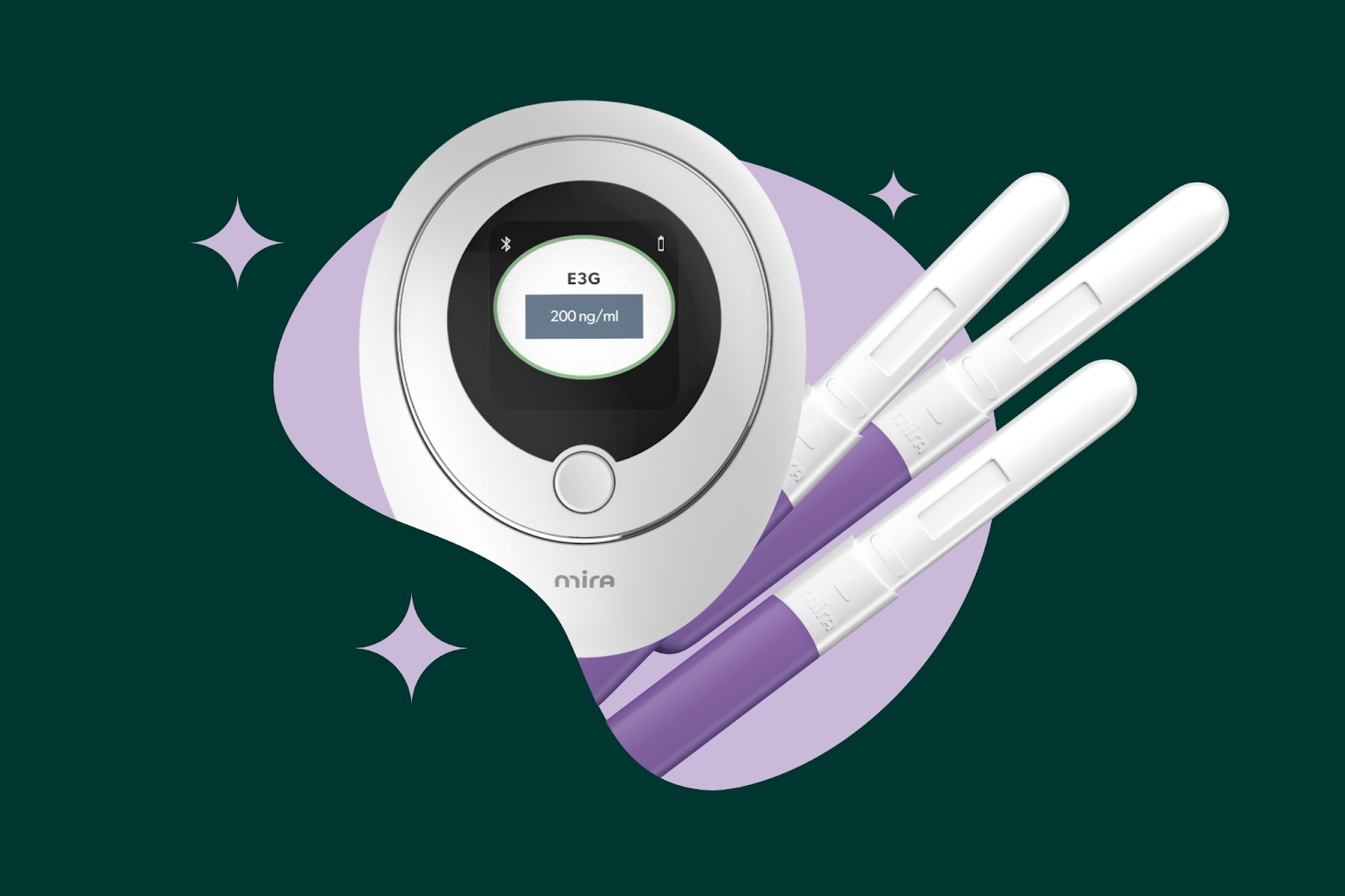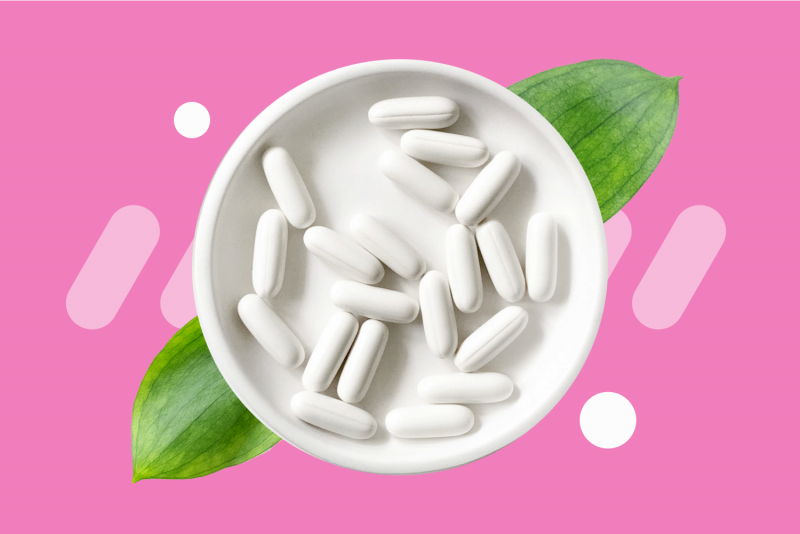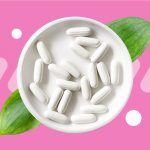Does Fertility Tea Work? A Look at Ingredients & Science
The internet is a wealth of information when it comes to boosting fertility or trying to conceive. If you’ve ever consulted Doctor Google, you’ll know that there’s no shortage of advice on how to get pregnant and are likely familiar with fertility tea .

With all the noise online, it can be difficult to separate fact from fiction, or rather evidence-based recommendations from anecdotal stories. In this article, we’ve done the heavy lifting for you and investigated the ingredients and science behind fertility tea. We’ve sorted the anecdotes from the evidence and the stories from the studies to find the answer to one question – does fertility tea work?
Does fertility tea work?
While there is no shortage of anecdotal evidence claiming fertility teas will boost your chances of getting pregnant, there is limited clinical evidence to support these claims. And it’s important to note that every blend is different and ingredients will change depending on what brand you purchase or even what part of the world you are from.
Although fertility tea and herbal blends have not been proven effective, there is some research to show the benefits from certain plant compounds. Research is limited in this area and often focuses on other benefits rather than fertility. So even though benefits have been shown for other conditions with herbal remedies, no research has been conducted in the fertility space.
It’s also important to note that these teas are not approved by the FDA as a treatment for fertility and just because they’re herbal doesn’t mean they’re safe. Some of the herbs found in fertility teas are unsafe during pregnancy and may interact with other medications or supplements. You should always talk to your healthcare provider before using them as a treatment for fertility.
What is fertility tea?
Tea comes in a variety of flavors and is prepared many ways around the world. As the second most widely consumed drink in the world, tea culture is alive and well and can vary widely between groups and individuals. What’s known as “fertility tea” is commonly a blend of herbs that purport to increase fertility and support reproductive health. Whether these herbs are consumed for their libido enhancing properties or to balance hormones naturally, they are a popular method for boosting chances of conception.
Because the term encompasses a broad swath of herbs that originate from many cultures, there is no one standard for fertility tea. And because they are usually proprietary blends, the research behind them is limited. However, there is a growing body of literature behind the individual ingredients commonly found in these teas and how they may be beneficial for your health.
The science
The science behind researching herbs for fertility can be complicated. Although they may have been used in some cultures for centuries, the scientific evidence is lacking. This lack of structured research is likely compounded by a variety of factors including everything from political will to how fertility is even studied in the first place.
Research is expensive and even though there isn’t much specifically behind fertility tea blends, there is a wider body of literature on the individual ingredients used in many of those blends. Ingredients are often chosen for their fertility-boosting properties in addition to other benefits like antioxidants or the nutrients they provide.
The ingredients
Because fertility tea is a blend of herbal teas, the ingredients will vary depending on which brand you buy. It’s commonly sold in premade tea bags or sachets but can also be found in loose leaf format. You can buy a premade blend with selected ingredients or make your own.
Common ingredients and popular fertility tea blends often include chasteberry, stinging nettle, ashwagandha, black cohosh, and red raspberry leaf to name a few. These ingredients not only have the most evidence for their fertility claims but they are also the ones that have been studied the most.
Even though they may not be a standard recommendation by your healthcare provider, some herbs have shown promising results for reproductive health. Both chasteberry (vitex agnus-castus) and black cohosh are found in many blends as a fertility enhancer while other ingredients, like green tea, are included for their many other health benefits.
Benefits of fertility tea
Aside from helping you get pregnant, there are a lot of potential benefits to fertility tea. The ingredients are designed to provide you with a mix of antioxidants, vitamins, and minerals to support your overall health, not just your reproductive health.
Having said that, certain ingredients may help in the broader area of your reproductive health. For instance, the raspberry leaves are thought to increase blood flow to the uterus and strengthen uterine muscle fibers and have long been touted for its “uterine strengthening” properties. While the antioxidants in green tea can help offset free radicals throughout the body, limiting their negative impact on your health (which can negatively impact your fertility).
One major benefit of fertility tea is how it can help you to relax. Not only can stress have a negative impact on your overall health, but it can also hurt your chances of getting pregnant. Having a relaxing ritual like making a cup of tea not only helps you get relaxation promoting vitamins and minerals in your body, but can put your mind in the right state to conceive.
Risks
Anything you put in your body comes with risks and this is especially true if you are TTC. While there may be limited side effects, the main cause of concern is regarding ingredients you should avoid while pregnant. The clinical evidence around fertility teas is limited but some herbs may interact with medications or other supplements so always check with your healthcare provider first. For instance, the herb ashwagandha could be a beneficial ingredient in fertility teas but it is unsafe during pregnancy. Together with your healthcare provider, you can evaluate whether the fertility boosting effects are worth the risk of an adverse impact after conception.
Another risk to consider is the source of your tea. Since they aren’t regulated by the FDA, the quality and effectiveness of ingredients and brands may vary. Choose your tea from a reputable source or with the help of a trained herbalist for the safest option.
How to prepare fertility tea
Whether you make your own or buy a premade blend, fertility tea is simple and easy to prepare. You may be used to steeping your average cup for 5 minutes or less, but most herbal infusions require slightly longer than that.
Once you’ve poured the boiling water over the tea bag (or loose herbs), cover and let your tea steep for at least 10 minutes. The extra steeping time is needed to get the most therapeutic benefits from all the ingredients and you can enjoy the aromas while you wait. Discard the used herbs or tea bag and enjoy with a touch of honey, maple syrup, or even a slice of lemon.
Fertility teas to try
Looking to try out some fertility tea but aren’t sure which brand to choose? We’ve looked at popular options to help you decide.
Pink Stork
This popular tea comes in both sweetened and unsweetened versions and has a minty flavor. Designed to support a woman’s natural reproductive cycle, it can be enjoyed hot or cold and many reviews swear by it. The blend includes some of the most well-known fertility herbs and claims to support your body’s natural fertility and overall reproductive wellness.
Birds & Bees
Brought to you by a company who’s sole mission is to offer families “delicious herbal infusions”, it’s no wonder that they also offer a fertility tea. Their Grounded Blend is designed to support and balance your reproductive health through organic herbs like oat tops and dandelion leaf, while there are many options for safe tea consumption during pregnancy as well. The subtle herbal flavor makes this a great option for anyone just starting out with tea or those that need a gentler flavor.
Fertility tea alternatives
Fertility tea is just one option to support your reproductive health. Addressing other factors, like exercise and stress, can set the stage for conception and a healthy pregnancy.
Yoga
Yoga is especially helpful when preparing for a healthy pregnancy and can have a number of benefits. Not only does it help with stress relief and muscle relaxation, but yoga also encourages you to release your need for control, something that can be especially helpful to practice when you’re TTC.
The science is just catching up to this ancient practice but anecdotal evidence abounds and increasing numbers of women are turning to yoga on their fertility journey. There are even specific poses for amplifying fertility and it’s a relatively easy and inexpensive practice.
Meditation
Meditation is a powerful habit that can have positive effects on your fertility thanks to its potent ability to alleviate stress. Stress may not be the direct cause of any fertility struggles, but it doesn’t help and can certainly contribute negatively to your overall health.
And while fertility meditations may not actually help you get pregnant, they will calm your mind and body to help you reduce stress and anxiety. Studies show meditation can promote better emotional health, reduce inflammation, improve sleep, and even decrease blood pressure. There are many different types so research your options and find the one you enjoy as that will help you stick with it and feel the benefits.
Healthy habits
Adopting healthy habits before you find out you’re pregnant is a great way to set the stage for conception. Lifestyle factors like stress, healthy eating, and exercise are all important elements when planning a pregnancy and can impact your fertility. Additionally, tracking your cycle and knowing when you ovulate is everything if you’re trying to get pregnant. The goal is to live the healthiest lifestyle you can to give yourself the best chance at getting pregnant.
Fertility tea FAQs
Here are some of the commonly asked questions about fertility tea.
When should you drink fertility tea?
If you are TTC then we recommend drinking fertility tea after your period ends, the week before ovulation, and while you are ovulating. You should not drink fertility tea during your period and it is not intended for use during pregnancy or lactation. It’s also important to tell your healthcare provider when taking natural fertility supports as there could be potential interactions with any medications or supplements you might be taking.
Can fertility tea really help you get pregnant?
While there may not be a lot of concrete evidence to support the effectiveness of fertility teas, that doesn’t mean it can’t help you get pregnant. There are many benefits for fertility to drinking tea when TTC. Not only can it lower your caffeine intake, but having a cup of tea can be a relaxing ritual that you can use to increase your water intake and even replace other drinks like soda.
How long does fertility tea take to work?
Fertility is a nebulous area with many online claims that “this tea worked” or is the reason someone got pregnant. Unfortunately, even though these claims and stories might have you convinced, there is no scientific data to support them and many companies are just trying to capitalize on a vulnerable market.

The average conception time is six to twelve months but there are many things you can do to support your health and increase your chances of getting pregnant naturally. One of the best ways to do that is by tracking your cycle and knowing when you ovulate to make the most of your fertile window and get pregnant fast.
Mira’s Editorial Process
All content produced by Mira meets stringent editorial standards, ensuring excellence and accuracy in language and medical precision. Every piece undergoes thorough fact-checking and review by qualified professionals. Check out our full editorial process to learn more.










